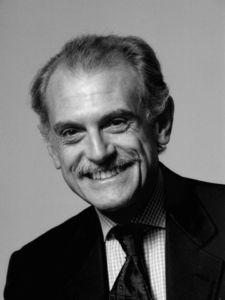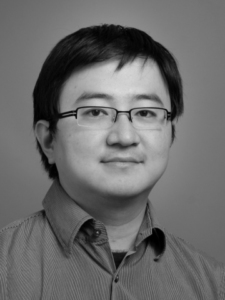Webinar Series October 24, 2018

24 October 2018, 11 AM – 12 PM ET
View Event Recording | View Special Issue
Speakers
Description
The advancement of cyber–physical systems (CPS), such as autonomous vehicles, robots, wearable devices, and smart buildings, has shown great promises. However, many processes in current CPS design practices are ad-hoc and manual, and incapable of coping with the challenges from growing functional and architectural complexity, uncertain operational environment, and stringent system requirements. It is now a critical time for the CPS community to aggressively pursue design automation, to develop new methodologies, algorithms and tools for improving CPS design quality, scalability, reliability and productivity, and to facilitate a bold move from ad-hoc CPS design towards systematic and formal techniques. This webinar will provide an overview of the recently published special issue of the Proceedings of the IEEE on design automation for CPS, introduce the history and economic aspect of CPS design, and highlight two papers from the issue on CPS design tools and formal techniques, respectively.
About the Presenters
Richard Murray received the B.S. degree in electrical engineering from California Institute of Technology (Caltech), Pasadena, CA, USA, in 1985 and the M.S. and Ph.D. degrees in electrical engineering and computer sciences from the University of California at Berkeley, Berkeley, CA, USA, in 1988 and 1991, respectively. He is currently the Thomas E. and Doris Everhart Professor of Control & Dynamical Systems and Bioengineering at Caltech. His research is in the application of feedback and control to networked systems, with applications in biology and autonomy. Current projects include analysis and design of biomolecular feedback circuits, synthesis of discrete decision-making protocols for reactive systems, and design of highly resilient architectures for autonomous systems.
Alberto Sangiovanni-Vincentelli is the Edgar L. and Harold H. Buttner Chair at the Electrical Engineering and Computer Sciences Department, University of California, Berkeley, where he has been a member of the faculty since 1976. He helped founding Cadence and Synopsys, the two leading companies in EDA. He is on the Board of Directors of Cadence, KPIT Technologies, Sonics, Expert System, Cogisen and Chairman of the Board of UltraSoC and Expert System USA. He consulted for companies such as Intel, HP, Bell Labs, IBM, Samsung, UTC, Kawasaki Steel, Fujitsu, Pirelli, GM, BMW, Mercedes, Magneti Marelli, ST Microelectronics. Dr. Sangiovanni-Vincentelli is a Fellow of the Association for Computing Machinery (ACM), a member of the National Academy of Engineering, and holds two honorary Doctorates from Aalborg University (Denmark) and KTH (Sweden). He earned the IEEE/RSE Maxwell Award for groundbreaking contributions that have had an exceptional impact on the development of electronics and electrical engineering, the Kaufmann Award for seminal contributions to EDA, the EDAA Lifetime Achievement Award, the IEEE/ACM R. Newton Impact Award, the University of California Distinguished Teaching Award, the IEEE Technical Committee on Cyber–Physical Systems (TC-CPS) Technical Achievement Award, the International Symposium on Physical Design (ISPD) lifetime achievement award, and the IEEE Graduate Teaching Award for inspirational teaching of graduate students.
Janos Sztipanovits graduated from the Technical University of Budapest, Budapest, Hungary, in 1970 and received the Ph.D. degree from the Hungarian Academy of Sciences, Budapest, Hungary, in 1980. He is currently the E. Bronson Ingram Distinguished Professor of Engineering at Vanderbilt University, Nashville, TN, USA, and founding Director of the Institute for Software Integrated Systems. His current research interest includes the foundation and applications of model and component-based design of cyber-physical systems, design automation methods, and systems-security codesign technology. Dr. Sztipanovits is an external member of the Hungarian Academy of Sciences and holds the title of John von Neumann Professor of the Technical University of Budapest. He was founding chair of the ACM Special Interest Group on Embedded Software (SIGBED).
Qi Zhu received the B.E. degree in computer science from Tsinghua University, Beijing, China, in 2003 and the Ph.D. degree in electrical engineering and computer science from the University of California at Berkeley, Berkeley, CA, USA, in 2008. Currently, he is an Associate Professor at the Electrical Engineering and Computer Science Department, Northwestern University, Evanston, IL, USA. His research interests include model-based design and software synthesis of cyber–physical systems, CPS security, embedded and real-time systems, and system-on-chip design. Prof. Zhu received four best paper awards at the Design Automation Conference (DAC), the International Conference on Cyber– Physical Systems (ICCPS), and the ACM Transactions on Design Automation of Electronic Systems (TODAES); the National Science Foundation (NSF) CAREER award; and the IEEE Technical Committee on Cyber–Physical Systems (TC-CPS) Early-Career Award.



